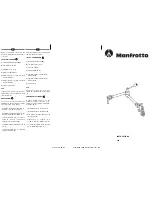
QuercusVL Programming Manual
ranges of distribution of lengths in the summary (starting from zero).
If there is no LengthsUpperLimit at the specified position, it returns null.
The parameter “h” is a handler of summary (Summary).
●
OccupationsUpperLimit
C++:
OccupationsUpperLimit get_OccupationsUpperLimit()
C:
Does not exist
In C++, it returns the collection of values making up the ranges of distribution of
occupancies in the summary.
In C, there is no representation of “OccupationsUpperLimit” collection, but methods to
directly access to collection properties :
●
int VL_Summary_get_OccupationsUpperLimit_Count(int h): number of values
making up the ranges of distribution of occupancies in the summary.
●
int VL_Summary_get_OccupationsUpperLimit_Item(int h, int item): returns the
value in the indicated position, inside the collection of values making up the
ranges of distribution of occupancies in the summary (starting from zero).
If there is no OcupationsUpperLimit at the specified position, it returns null.
The parameter “h” is a handler of summary (Summary).
3.29.2. Methods
●
IsValid
C++:
bool IsValid()
C:
Does not exist
Returns true if the object contains valid information about a summary, and false if
invalid. Some methods, may sometimes, return void summaries. In C, this behaviour is
detected as its value will be “0”. In C++, however, this method is necessary because
the object, as it is not a pointer, would always be valid.
●
AddRef
C++:
Does not exist
C:
void VL_Summary_AddRef ( int h )
See 2.2.1. Memory management.
●
Release
C++:
Does not exist
Quercus Technologies
76
















































